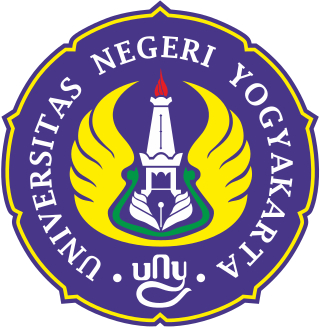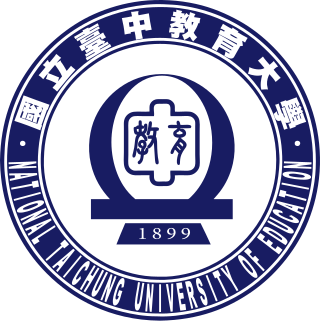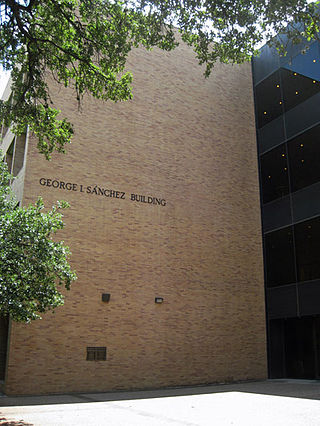A Bachelor of Education is an undergraduate academic degree which prepares students for work as a teacher in schools. A Bachelor of Education program typically lasts three to four years and combines both coursework and practical experience in educational settings. The curriculum is designed to provide foundational knowledge in pedagogy, educational psychology, teaching methodologies, and subject-specific training. Graduates of this program are equipped with the skills necessary to foster a supportive and effective learning environment for their students.
The University of Virginia School of Education and Human Development is a public school of education in the United States in Charlottesville, Virginia. The School of Education and Human Development offers professional programs designed to prepare individuals for a variety of careers related to the practice of education. The current Dean of the School of Education and Human Development is Stephanie J. Rowley.
This is an index of education articles.
The specialist degree is an academic degree conferred by a college or university. The degree is formatted differently worldwide and may be either a five-year program or a doctoral level graduate program that occurs after a master's degree but before a doctoral degree. In the post-Soviet system, the degree is between a bachelor's and a master's degree.
The Master of Education is a master's degree awarded by universities in many countries. This degree in education often includes the following majors: curriculum and instruction, counseling, school psychology, and administration. It is often conferred for educators advancing in their field. Similar degrees include the Master of Arts in Education and the Master of Science in Education.

Yogyakarta State University is a public state university established in Special Region of Yogyakarta, Indonesia in 1964. The university's main campus is located in Sleman Regency. UNY was previously part of a faculty at Gadjah Mada University which eventually formed a separate institution called the Yogyakarta Teacher Training and Education Institute. UNY has also been considered one of the best teacher educational institutions in Indonesia, along with the Indonesian University of Education and the State University of Malang.

The College of Education is the undergraduate and graduate education school of the University of Illinois Urbana-Champaign. It was founded in 1905 and took on its current name in 1918 after previously being known as the School of Education. The college offers undergraduate, graduate, and online programs in areas including elementary education, early childhood education, special education, and Educational Organization and Leadership. It began with six departments; three of them merged and formed the largest department in the college. All departments offer masters and doctoral degrees. However, only two departments offer undergraduate degree programs: Special Education and Curriculum & Instruction. The college also offers 16 online programs. Students seeking an undergraduate degree in the college must meet the minimum graduation requirement set forth by the university. To obtain a certification, students must also meet the requirements of the Council on Teacher Education, a professional educational administration at the University of Illinois. The total enrollment is 1,361 students as of 2015.

The UNLV College of Education is an academic unit of the University of Nevada, Las Vegas (UNLV).

The School of Pedagogical and Technological Education or ASPETE (Α.Σ.ΠΑΙ.Τ.Ε.) is a Greek University which specializes in training teachers.

The University of National Education Comision, is named after the Commission of National Education created by King Stanisław August Poniatowski. It is a public university located in Kraków, Poland. It was founded soon after the conclusion of World War II, on 11 May 1946, originally as the National Higher College of Teacher Training. Its aim is the training of highly qualified teaching staff for the Polish educational system.

A certified teacher is an educator who has earned credentials from an authoritative source, such as a government's regulatory authority, an education department/ministry, a higher education institution, or a private body. This teacher qualification gives a teacher authorization to teach and grade in pre-schools, primary or secondary education in countries, schools, content areas or curricula where authorization is required. While many authorizing entities require student teaching experience before earning teacher certification, routes vary from country to country.
The University of Pittsburgh School of Education consists of five academic departments: Administrative and Policy Studies, Health and Physical Activity, Instruction and Learning, Learning Sciences & Policy, and Psychology in Education. The school is primarily located in Wesley W. Posvar Hall although the school has facilities in the Petersen Events Center, Trees Hall, the Learning Research and Development Center, Falk School, and other locations. As of the 2016–2017 academic year, the student body consisted of over 1,200 students with nearly 1,000 among the over 50 graduate programs. The school is currently ranked 27th in graduate education according to U.S. News & World Report. As of 2017, over $26 million in funded research was undertaken in the school.

The Liceo de Cagayan University (LDCU) is a private non-sectarian basic and higher education institution in Cagayan de Oro, Philippines. It was founded in 1955 by Rodolfo N. Pelaez of Cagayan de Oro and his wife Elsa P. Pelaez of Cebu City.

The National Taichung University of Education is a university in West District, Taichung, Taiwan. Founded in 1899 at the Confucian Temple in Changhwa county, it moved to the current site in 1923.

The University of Kentucky College of Education is an NCATE and Kentucky Education Professional Standards Board accredited, public school of education located on the campus of the University of Kentucky. The College of Education teaches about 3,000 students with approximately 90 faculty members.

One of 18 colleges and schools at the University of Texas in Austin, Texas, the College of Education provides a variety of academic degrees in education fields, as well as certification programs at all levels. It has consistently ranked among the top public university graduate education programs by U.S. News & World Report. The 2014 edition of "America's Best Graduate Schools" ranks the College of Education fourth behind Vanderbilt University, Johns Hopkins University, and Harvard University. The College employs 105 full-time tenured/tenure track professors and 84 non-tenure track.

The College of Education at Louisiana Tech University is one of the five colleges comprising Louisiana Tech University. The mission of the College traces back to the origins of Louisiana Tech in 1894, where the preparation of teachers was a mission of the institution. Today, the College of Education consists of three separate departments awarding thirty-five different academic degrees ranging from the baccalaureate to the doctoral levels.
The University of Connecticut (UConn) Neag School of Education offers undergraduate and graduate degrees in education, sport management, and leadership across four campuses, with the main campus located in Storrs, Connecticut. The Storrs location is the main UConn campus and is home to the Renzulli Center for Gifted Education and Talent Development, and additional locations are in Hartford, Waterbury, and Groton. It is ranked number 16 among public graduate schools of education in the nation. The schools' research and teaching programs have been funded by a wide number of institutions, such as the National Science Foundation and the Department of Education.

The Far Eastern University – Institute of Education, or simply IE, is the academic institute offering teacher education of the Far Eastern University. It is one of the four earliest institutes that comprised the university in 1934.

The University of the Philippines Diliman College of Education is a degree-granting unit of the University of the Philippines Diliman specializing in primary and secondary education, as well as school administration, guidance, and philosophy of education.












